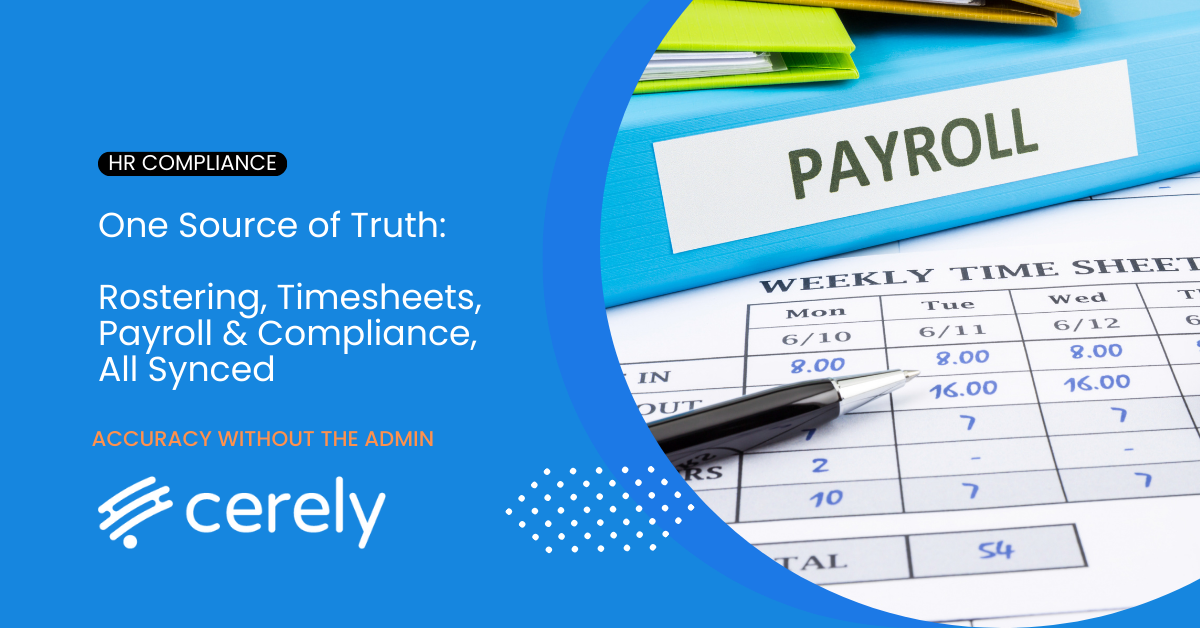Public liability insurance is essential coverage for Security Companies, as it provides financial protection in case of any legal claims made by the public or third-party individuals. It is imperative for security companies to keep the cost of their public liability insurance low, as this can significantly impact their bottom line. In this blog, we will discuss the best ways security companies can save and protect their public liability insurance each year.
Reviewing Your Current Policy & Procedures
The first step towards reducing the cost of public liability insurance is to review your current policy and procedures. This includes checking for any outdated information or any loopholes that could potentially lead to higher insurance costs. Make sure that your policy is up to date and covers all the services that you provide. For example, if you have recently started providing crowd control services, ensure your policy covers this. This will help you avoid any costly mistakes in the future.
Talk to Different Brokers
It is always a good idea to shop around for the best deal when it comes to insurance. Talk to different brokers and see if they have a different insurer that covers the type of services you provide. Make sure to compare the coverage, cost, and reputation of each insurance company before making a decision. This will help you find the best deal possible and ensure that you have the right coverage for your business.
Conducting Risk Assessments
Conducting risk assessments of any new or current client is crucial in reducing the cost of public liability insurance. This involves evaluating the potential risks and hazards associated with providing security services to a particular client. During this assessment, it is essential to look for ways to improve the safety and security of the public. For example, if a client requires crowd control services, you should recommend the best methods to ensure the safety of the public, such as ensuring the number of crowd controllers is sufficient for the number of patrons the venue can hold, the type of venue it is as well as the geographic area where the venue is located.
It is also important to conduct risk assessments every six months thereafter to ensure that the safety measures are still in place and are working effectively. This will not only help you reduce the cost of your public liability insurance but also ensure the safety of your clients and the public.
Providing Recommendations
Part of your risk assessment should include providing recommendations to improve the safety and security of your client’s site and the public. This could include recommendations on the best methods to control crowds, the use of security cameras, or the deployment of extra security personnel. Providing recommendations that are tailored to your clients’ specific needs will not only help reduce the cost of your insurance should a claim happen but also provide a high level of protection to your clients and the public.
Reducing the Percentage of High-Risk Services
One way to reduce the cost of public liability insurance is to reduce the percentage of high-risk services you provide. For example, if you currently provide 40% of your services in crowd control, consider reducing this to 20%. This will lower your overall risk and, in turn, reduce the cost of your insurance. To reduce the percentage of your high-risk clients, you can take three approaches. You can either subcontract some of the high-risk clients out to other security providers, target new clients that are low-risk, which will increase your low-risk percentage, or stop providing your service to the real high-risk clients to help protect your insurance better.
There are several ways security companies can save on their public liability insurance each year. By reviewing your current policy and procedures, talking to different brokers, reducing the percentage of high-risk services, conducting risk assessments, and providing recommendations, security companies can reduce the cost of their insurance while still providing a high level of protection to their clients and the public.
Remember, public liability insurance is essential coverage for security companies, and it is imperative to find the best deal possible. By following the tips outlined in this blog, security companies can save on their public liability insurance each year while still providing the best possible protection to their clients and the public.
How will providing security recommendations to my clients protect my Insurance?
Providing security recommendations to your clients can help protect your insurance by reducing the risk of public liability claims. Here are a few ways that providing security recommendations can help protect your insurance:
- Conducting risk assessments: By conducting regular risk assessments of your clients’ properties, you can identify potential risks and make recommendations to reduce the risk of incidents happening. This will help to reduce the likelihood of public liability claims, which in turn will help to reduce the cost of your insurance.
- Providing safety and security recommendations: By providing safety and security recommendations to your clients, you are demonstrating your commitment to reducing the risk of incidents happening. This will show your clients and your insurance company that you are taking steps to reduce the risk of public liability claims, which will help to minimise the cost of your insurance.
- Reducing the risk of incidents: By providing security recommendations to your clients, you are helping to reduce the risk of incidents happening. This will help to reduce the risk of public liability claims, which in turn will help to reduce the cost of your insurance.
- Building trust with clients: By providing security recommendations to your clients, you are building trust and showing that you are committed to providing the best possible service. This will help to build long-term relationships with your clients, which in turn will help to reduce the risk of public liability claims.
- Improving client safety: By providing security recommendations to your clients, you are helping to improve their safety and security. This will help to reduce the risk of incidents happening, which in turn will help to reduce the risk of public liability claims.
Providing security recommendations to your clients can help protect your insurance by reducing the risk of public liability claims or from claims being pushed to your insurance (contribution claim). By conducting regular risk assessments, providing safety and security recommendations, and building trust with your clients, you can ensure that your company is protected against public liability claims or contribution claims and that you are able to minimise the cost of your insurance over time.
What happens if my clients do not implement our security recommendations for their site?
Clients who ignore the security advice given to them may expose themselves to security threats, public liability claims or a loss of assets. These risks could result in financial losses, damage to their reputation, and legal consequences. As a security consultant, it is important to educate clients about the risks and to emphasise the significance of implementing security measures to safeguard their assets and the public. Ultimately, the decision to implement the recommended security measures is the responsibility of the client.
In the event of a security incident, the security provider’s insurance company may argue that if the client had followed the recommended security measures, the incident may not have occurred. This argument can potentially protect the security provider’s liability coverage and minimise the compensation their insurance company will have to pay out. In some cases, it has been observed that the security provider’s insurance company has not had to pay any compensation.
As a security advisor, it is important to document your recommendations and the steps you took to educate the client about the risks and the importance of implementing them. This documentation can serve as evidence of your efforts to mitigate risks and can help protect your public liability insurance in the event of a security incident. Additionally, it is a good practice to have clients sign an agreement acknowledging that they have received and understood your recommendations and that the implementation of the recommendations is their responsibility.
What to do when you get a Public Liability Claim
It is important to remember that public liability claims can be costly and time-consuming, so it is always better to take proactive measures to reduce the risk of these claims occurring in the first place. This includes conducting regular risk assessments, providing training to your staff, and reviewing your procedures and systems on a regular basis. By doing so, you can minimise the risk of public liability claims and reduce the cost of your insurance over time.
When you receive a public liability claim, it is important to take the following steps:
- Review the incident thoroughly: The first step is to review the incident and gather all relevant information thoroughly. This should include details of what happened, when it happened, who was involved, and any other relevant details.
- Document the incident: It is important to document the incident as soon as possible. This will help you to remember all the details of the incident and will also be useful for your insurance company when assessing the claim.
- Contact your insurance broker: The next step is to contact your insurance broker and notify them of the claim. Your broker will guide you on what information you will need to provide to the insurance company.
- Conduct a full investigation: A full investigation of the incident is essential. This will help you to understand how the incident happened, what took place, and what measures or steps could have been taken to prevent the incident from happening.
- Review your procedures and systems: As part of the investigation, it is important to review your procedures and systems to determine if there are any weaknesses that need to be addressed. This will help you to reduce the risk of similar incidents happening in the future.
- Cooperate with your insurance company: It is important to cooperate fully with your insurance company. This includes providing all relevant information and documentation and participating in any negotiations with the person or company making the claim.
- Take appropriate measures to prevent similar incidents: Once the investigation is complete, it is important to take appropriate measures to prevent similar incidents from happening in the future. This may involve changes to your procedures and systems, providing additional training to your staff, or taking other steps to reduce the risk of public liability claims.
By taking these steps, security companies can respond effectively to public liability claims and minimise the risk of similar incidents happening in the future. This will help to protect both the company and its clients and ensure that the company remains fully insured against public liability claims.
Incorporating robust compliance measures and automation is essential for security companies to not only grow but to reduce risks and streamline their operations.
Cerely will automate your compliance processes, enhancing overall efficiency. Take the first step toward protecting your business and improving your bottom line—explore how Cerely can streamline your Security business today!



